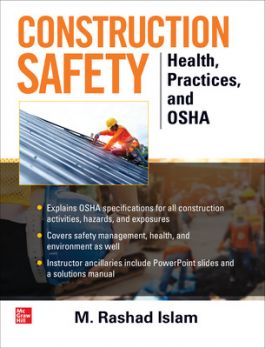Public health experts endorse paid sick leave
APHA wants more to have sick days, paid family & medical leave

 The Governing Council of the American Public Health Association (APHA) has approved a policy statement expressing APHA’s support for expanding U.S. workers’ access to earned sick days and paid medical and family leave.
The Governing Council of the American Public Health Association (APHA) has approved a policy statement expressing APHA’s support for expanding U.S. workers’ access to earned sick days and paid medical and family leave.
The U.S. is the only industrialized nation that does not give workers access to paid sick time to recover from illness, or to paid maternity leave following a baby’s birth. This policy statement from the APHA documents the public health damage from inadequate paid leave policies and expresses support for laws and policies that expand access to paid sick, medical, and family leave.
Low-wage v. higher-paid workers
“The lack of inclusive medical and family leave policies exacerbates U.S. health disparities,” explained policy co-author Celeste Monforton, DrPH, MPH, a lecturer at the George Washington University (GW) School of Public Health & Health Services (SPHHS) and a member of APHA’s Occupational Health & Safety (OHS) Section. “Low-wage workers are less likely than higher-paid workers to have access to paid sick leave as an employer benefit or to be eligible for Family and Medical Leave Act leave.”
Currently, some employers offer paid sick leave to employees as a benefit, but among private-sector workers earning wages in the lowest 25th percentile, fewer than one-third have access to such leave. The state of Connecticut and six US cities (San Francisco; Washington, D.C.; Seattle; Portland, Ore.; New York City; and Jersey City, N.J.) have passed laws requiring some or all employers to allow workers to earn paid sick time.
FMLA limits
For longer-term leaves, the U.S. Family and Medical Leave Act (FMLA) allows workers to take unpaid time off work without fear of being fired if they have a serious medical condition, are caring for a loved one with a serious medical condition, or have a new child. However, the FMLA does not cover workers who have been employed for less than a year or whose employer has fewer than 50 employees, so its benefits are available to fewer than 60 percent of U.S. workers.
In Congress, Sen. Kirsten Gillibrand (D-N.Y.) and Rep. Rosa DeLauro (D-Conn.) have announced plans to introduce the Family and Medical Insurance Leave (FAMILY) Act, which would make partially paid medical and family-caregiving leave available to all workers regardless of employer size or sector. The APHA policy statement expresses support for the introduction and passage of such a law, which would be funded by small contributions from employers and employees.
Coming to work sick
“Many workers face the threat of job loss if they take a day off work to recover from an illness or care for a sick child,” said policy co-author Liz Borkowski, MPH, a researcher at GW SPHHS and a member of APHA’s OHS section. “And even workers who have access to unpaid sick or family leave often feel they can’t afford to miss a day or more’s pay. This means workers often come to work even when they have the flu or a gastrointestinal illness, and that increases the risk of diseases spreading in their communities.”
Jodie Levin-Epstein, deputy director of the Center for Law and Social Policy (CLASP), said, “The APHA policy adds key momentum to a local and state movement that is winning laws to provide earned sick days and paid family and medical leave insurance. APHA’s policy will bolster emerging local and state campaigns and should foster national action, helping advocates better inform lawmakers and the public about the importance of paid leave. Public opinion is supportive of leave laws; it’s incredibly valuable to add the perspective of experts.” Members of APHA’s OHS section coordinated with CLASP in developing the policy statement.
Rhode Island recently became the third U.S. state to pass a law establishing an insurance system for workers who need time off to care for a new child or a loved one with a serious health condition. California and New Jersey already have such systems, which are funded by small contributions from workers’ paychecks and have successfully helped thousands of workers care for their families while receiving a portion of their usual pay. Such “social insurance” systems could be adopted in other states or at the federal level under a model like that proposed by the FAMILY Act.
“Earned sick days and paid family and medical leave are good for working families and for public health,” Monforton said. “We’re delighted to have APHA on the record as supporting them, and hope to see the U.S. improve its paid leave policies in the near future.
Looking for a reprint of this article?
From high-res PDFs to custom plaques, order your copy today!





.jpg?t=1721257160)

